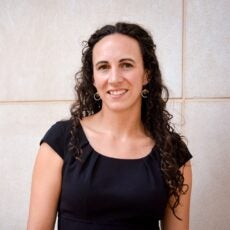Watch the recording.
Attaining Just (Energy+) Transitions
Event Summary
There is growing consensus that responses to the climate crisis must be embedded in justice thinking, and that mitigation and adaptation approaches should not create new or entrench old injustices. Just Transitions has emerged in response.
According to the International Labour Organization, Just Transition refers to greening the economy in a way that is as fair and inclusive as possible to everyone concerned, creating decent work opportunities and leaving no one behind. Its manifestations are various, appearing according to one review, as a (1) a labor-oriented concept, (2) an integrated framework for justice, (3) a theory of socio-technical transition, (4) a governance strategy, and (5) public perception. Across all forms, it has seen a rapid surge in both academic and practical popularity through its application to energy dimensions of the climate challenge and more.
This talk will introduce state-of-the-art Just Transition thinking, exploring key barriers to its attainment and galvanizing opportunities. Drawing inspiration from the work of the Scottish Just Transition Commission, one of the first global groups established to provide independent scrutiny and advice on how to put justice at the heart of climate action, it also considers one of the biggest challenges in the Just Transition space: how we evaluate and monitor success and failure.
View the Presentation
Attaining Just (Energy+) Transitions
Kirsten Jenkins
Kirsten E. H. Jenkins
Senior Lecturer, University of EdinburghKirsten Jenkins is a senior lecturer in energy, environment, and society within the School of Social and Political Sciences at the University of Edinburgh, Scotland. Jenkins is a 2024-2025 Kleinman Center Visiting Scholar.
Shelley Welton
Presidential Distinguished ProfessorShelley Welton is Presidential Distinguished Professor of Law and Energy Policy with the Kleinman Center and Penn Carey Law. Her research focuses on how climate change is transforming energy and environmental law and governance.


